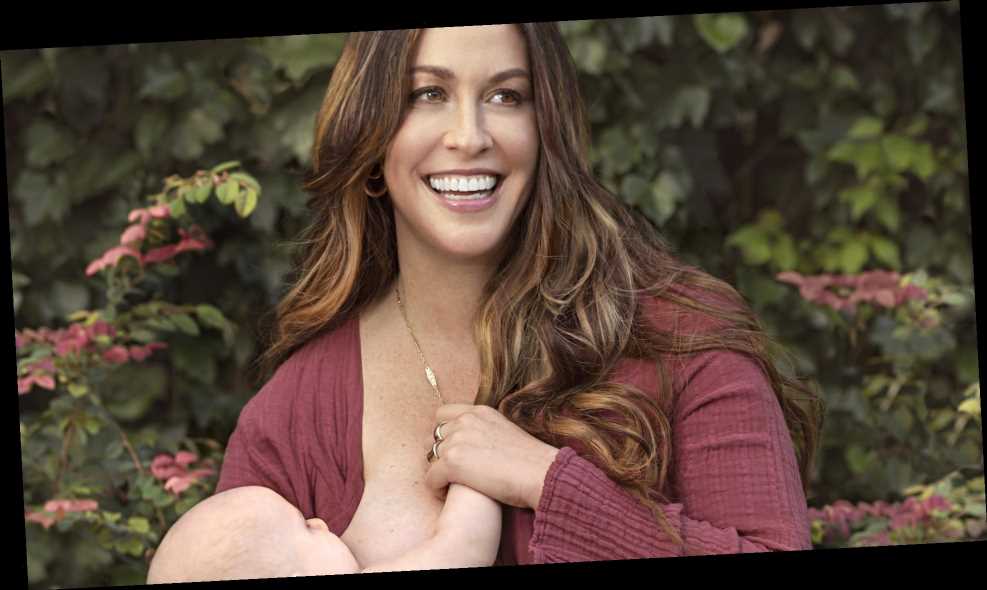Alanis Morissette’s music lyrics have always inspired fans. Last year her 1995 album, Jagged Little Pill, even inspired a rock musical by the same name, and plenty of other musicians (including Demi Lovato and Taylor Swift) have credited her for helping them tap into their emotions. As a mother of three, though, she inspires people in other ways. This month, the Ironic singer opened up about her motherhood journey with Health.com and didn’t spare any details.
Morissette, who has a new album coming out this year, Such Pretty Forks in the Road, told the publication how her postpartum depression manifested after every one of her pregnancies. “My first two children, it was mostly depression, suicidal ideation, and anxiety. But the depression was so in my face that the anxiety was just background music. With this one, it’s mostly anxiety and almost no depression,” she says about Winter Mercy, the baby boy she gave birth to in August. The candid musician explains why these feelings are “purely animal.”
“With breastfeeding, your oxytocin goes sky-high. Then cortisol goes sky-high because you’re trying to protect the baby from, you know, a potential saber-toothed tiger. You’ve got these two competing hormones,” she explains about cortisol linking to depression while oxytocin can help treat anxiety and depression.
Even though Morissette has experienced depression before, she noted that it was much more extreme postpartum, telling Health: “Throughout my life I’ve had depression, but I wouldn’t have those invasive thoughts as much. It’s invasive thoughts of these horrible, horrifying images, and they often come at night.”
Still, Morissette fights against the voice inside her head that affects her bonding with Winter Mercy. “I rely on the oxytocin and on knowing that there’s a light at the end of the tunnel. And the bond just keeps growing over the years,” she told the publication.
Oh, and in case you’re wondering: She does not sleep when her baby sleeps. “Who the f— does that? I don’t know any mom that is like, ‘I totally sleep when they sleep,’” she told Health.
Honestly, we don’t know any either.
For more information on the warning signs and prevention of suicide, click here. If you’re considering suicide or fear you may become suicidal, please call the National Suicide Prevention Lifeline 24/7 at 1-800-273-TALK (8255). If you’re worried about someone you love, visit SuicidePreventionLifeline.org. If you live outside the U.S., you can find a list of suicide-prevention hotlines worldwide here.
For more accessible help, here are some of our favorite mental health apps.
Source: Read Full Article





